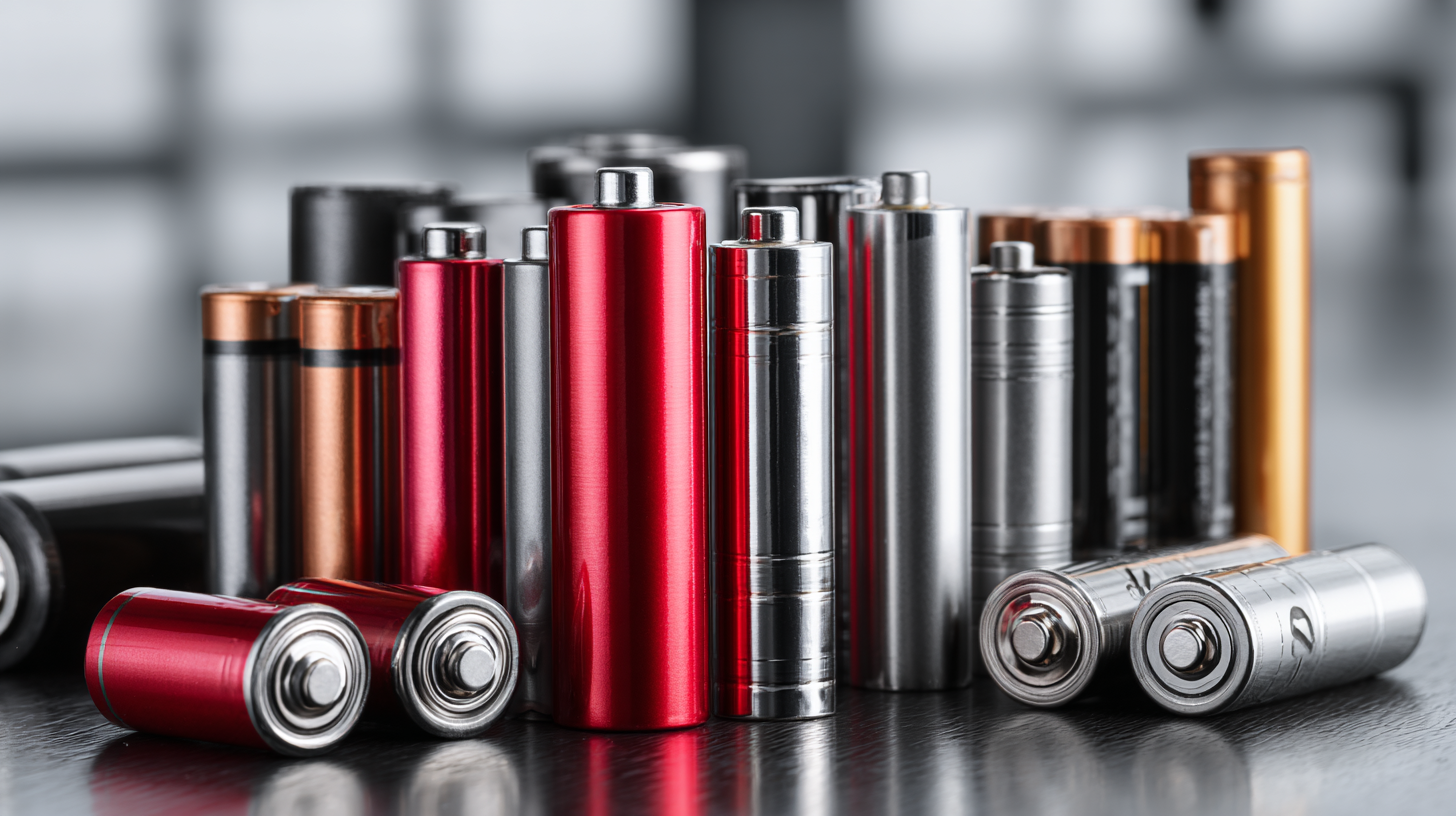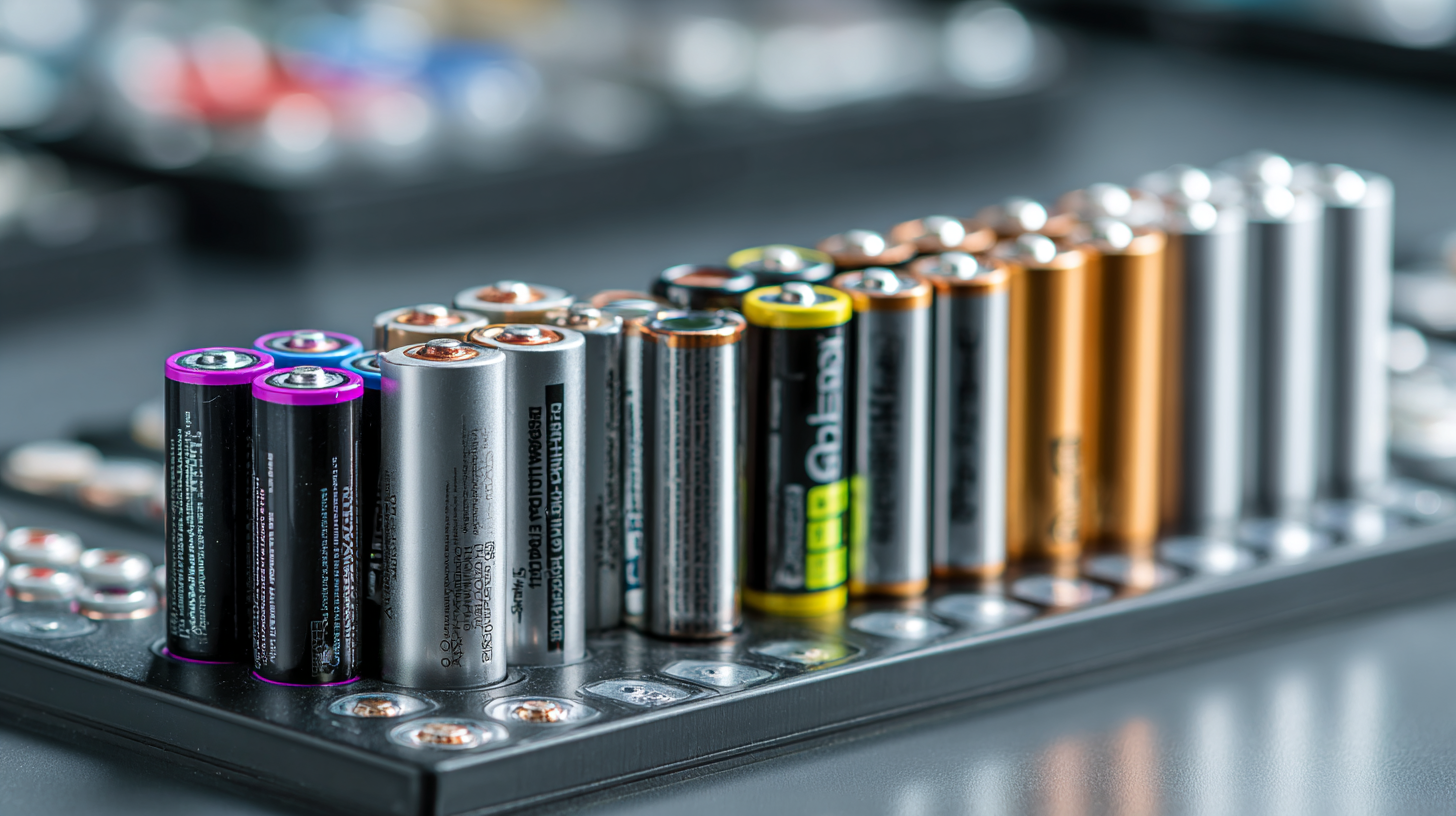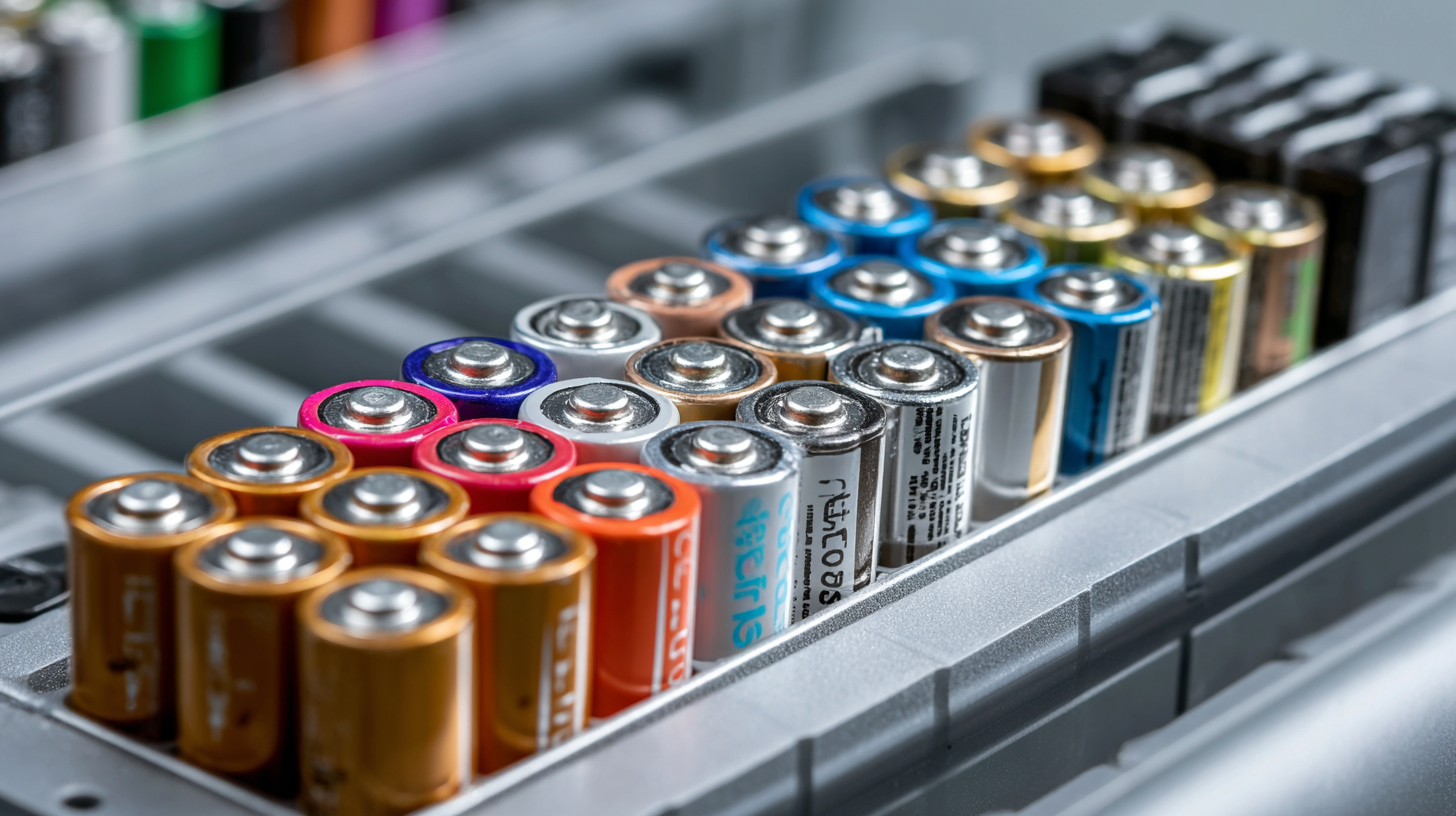Top Strategies for Sourcing Best Rechargeable Lithium Batteries in Global Markets
As the demand for energy-efficient solutions continues to escalate, the market for Rechargeable Lithium Batteries has experienced remarkable growth. According to a report by Mordor Intelligence, the global lithium-ion battery market is projected to reach USD 129.3 billion by 2027, with a compound annual growth rate (CAGR) of 18.0% from 2020 to 2027. This surge is driven by the increasing adoption of electric vehicles (EVs), renewable energy storage systems, and consumer electronics, all of which heavily rely on high-performance rechargeable lithium batteries. Industries are keenly exploring innovative sourcing strategies to meet this burgeoning demand while ensuring quality, sustainability, and cost-effectiveness. In this blog, we will delve into the top strategies for sourcing the best rechargeable lithium batteries in global markets, exploring real-world applications and industry case studies that highlight their critical role in modern technology.

Benefits of Choosing High-Quality Rechargeable Lithium Batteries for Global Markets
When considering the procurement of rechargeable lithium batteries in global markets, the benefits of selecting high-quality options are paramount. High-quality rechargeable lithium batteries offer enhanced energy density, which translates into longer usage times for devices. This is especially critical in today's fast-paced world where consumers expect reliable performance from their electronic devices without frequent recharging. High-quality batteries also tend to have better thermal stability, reducing the risk of overheating and enhancing safety—a crucial factor for manufacturers and consumers alike.

Additionally, investing in premium lithium batteries can lead to significant cost savings in the long run. While the initial price may be higher than lower-quality alternatives, the durability and lifespan of high-quality batteries typically exceed those of their cheaper counterparts. Consumers can enjoy the convenience of fewer replacements and decreased environmental impact due to reduced waste. Furthermore, reputable manufacturers often provide warranties and customer support, ensuring peace of mind for businesses sourcing these essential power sources. By prioritizing quality, companies can not only meet customer expectations but also establish a strong market presence in the competitive landscape of rechargeable batteries.
Key Factors to Consider When Sourcing Lithium Batteries from China
When sourcing lithium batteries from China, there are several key factors to consider, especially in light of the growing demand driven by the electric vehicle (EV) market. As reported in the Global EV Outlook 2024, global demand for batteries is expected to increase significantly, fueled by the surge in EV sales. The transportation sector represents the largest source of greenhouse gas emissions in the U.S., making access to efficient battery supply chains vital for a successful transition to clean energy.
In addition, recent trends indicate that lithium-ion batteries are becoming more cost-effective as supply begins to outpace demand. Industry assessments suggest that battery prices have been declining, driven by advances in production technologies and increased competition among suppliers. However, potential export restrictions proposed by China on critical minerals could affect global sourcing strategies, pushing buyers to diversify their supply chains. Evaluating the geopolitical landscape and potential trade dynamics will be crucial for any business looking to secure dependable lithium battery sources from this key market.
Furthermore, domestic production capacity is a focal point for U.S. policies, particularly as they intersect with national security and climate goals. Investment in next-generation battery technologies will not only support a more resilient supply chain but also mitigate risks associated with over-reliance on foreign suppliers. As stakeholders navigate these complexities, aligning their sourcing strategies with market trends and policy developments will be essential.
Top Strategies for Sourcing Best Rechargeable Lithium Batteries in Global Markets
| Criteria | Importance Level | Considerations | Typical Sources |
|---|---|---|---|
| Battery Capacity | High | Ensure capacity meets application needs | Manufacturers, Suppliers |
| Cycle Life | Medium | Longer life reduces replacement frequency | R&D Labs, Industry Reports |
| Safety Standards | High | Verify certifications (CE, UL, etc.) | Certifying Bodies, Suppliers |
| Cost | Medium | Balance between quality and price | International Markets, Distributors |
| Manufacturer Reputation | High | Research company history and reviews | Market Analysis, Feedback Platforms |
| Environmental Compliance | Medium | Check adherence to regulations (RoHS, WEEE) | Regulatory Agencies, Suppliers |
| Technical Support | Medium | Evaluate availability of post-sale support | Manufacturers, Online Communities |
Understanding Global Regulations for Lithium Battery Exports
Understanding the global regulations for lithium battery exports is essential for manufacturers and distributors aiming to navigate the complexities of the market. With recent developments, particularly China’s proposed export curbs on battery technologies and critical minerals, companies must stay informed about international trade policies and their implications. These regulations can significantly impact supply chains, making compliance a top priority for anyone involved in the lithium battery sector.
Tip: Keeping abreast of region-specific regulations is crucial. For instance, the EU's amendments to battery waste regulations could restrict the export of end-of-life batteries. Manufacturers should invest in understanding these regulations to better align their practices and avoid penalties.
Moreover, shipping lithium batteries internationally requires meticulous attention to safety guidelines and packaging regulations to avoid shipping complications. Stakeholders should develop robust logistics strategies that comply with regulations while ensuring the safe transport of lithium-ion batteries. This proactive approach not only enhances operational efficiency but also strengthens international business relationships.
Evaluating Manufacturers: How to Ensure Quality and Reliability
When sourcing rechargeable lithium batteries in global markets, evaluating manufacturers is crucial to ensure quality and reliability.
Prioritize manufacturers that adhere to international standards and possess relevant certifications, such as ISO 9001. This ensures that their production processes are standardized and that they maintain high-quality outputs. Always check for quality assurance measures in place, such as rigorous testing protocols for performance and safety.
Tip: Conduct thorough background checks on potential manufacturers by seeking out reviews and testimonials from previous clients. Engaging in direct communication can also reveal valuable insights into their operational practices and customer service responsiveness.
Another vital aspect is to assess the manufacturer's supply chain transparency. A reliable manufacturer should provide detailed information about their sourcing of materials, production methods, and their approach to dealing with waste. This clarity not only reflects their commitment to quality but also indicates a responsible approach to environmental sustainability.
Tip: Ask manufacturers about their return policies and warranty terms. A robust warranty can be a strong indicator of the confidence the manufacturer has in the longevity and performance of their products.
Emerging Trends in Lithium Battery Technology for Sustainable Solutions
The landscape of lithium battery technology is rapidly evolving, driven by a growing commitment to sustainability and efficiency. As solar energy becomes an increasingly popular source, the demand for reliable and innovative solar batteries is surging. Emerging trends indicate a significant shift toward advanced energy storage solutions that not only enhance performance but also prioritize environmental impact. The integration of smart energy technologies is reshaping how consumers and businesses approach energy management, paving the way for intelligent systems that optimize energy usage while reducing waste.
Recycling plays a pivotal role in the sustainable future of lithium batteries. As the electrification of society progresses, the need for effective recycling solutions has never been more critical. Innovations in lithium-ion battery recycling technology are enabling a circular economy, ensuring that spent batteries are reused and repurposed rather than discarded. Additionally, regulatory frameworks are evolving to support these initiatives, creating a conducive environment for sustainable practices in the battery industry. As we move toward a greener future, understanding and adapting to these trends will be essential for anyone looking to source the best rechargeable lithium batteries in global markets.

